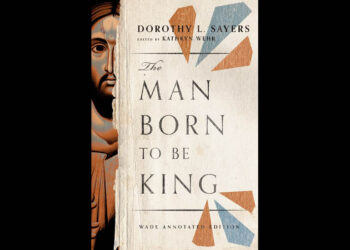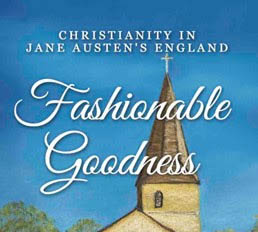Just a few days ago, David Crotty, Executive Editor of The Scholarly Kitchen, alerted the Chefs to a forthcoming deadline for contributions to the December “Best Books” posts, run as an annual tradition. There are no restrictions with regard to our selections, whether fiction or nonfiction, although there may be a gentle nudge for newer titles. Writing such a brief item is fun and, in reading those from others, I always encounter some new facet of an industry colleague’s personality. That said, readers of the posts get breezy recommendations rather than in-depth reviews.
Back in its September 21, 2023 issue, the Chronicle of Higher Education ran an article entitled “In Defense of the Beleaguered Academic Book Review“ (non-subscribers may encounter a paywall). The author, Dr. Carolyn Eastman, is a professor of history at Virginia Commonwealth University. She is also the current book-review editor of the William and Mary Quarterly. Her concern is that willingness to contribute book reviews is in decline and that this could translate ultimately to the loss of an important form of scholarly exchange.
Included in the article is a brief account of two reviews of the same book appearing in a scholarly journal issue. The juxtaposition was inadvertent, but was particularly revealing of the book’s topic because the two reviewers had opposing opinions as to the work’s contribution. Eastman’s position is that book reviews should be recognized as the scholar-to-scholar exchange that they are. To quote from the article, “A good review illuminates larger insights about how a book intervenes in a broader field of study and tells readers something more than a casual reader might discover. Ideally, a review displays generosity of spirit while also delivering honest assessment of a book’s strengths and weaknesses.” The article urges university administrators to revisit any existing practice of discouraging faculty from contributing such reviews.
Eastman’s argument hearkens back to a 2007 publication from the University of Missouri Press, specifically Gail Pool’s book, Faint Praise: The Plight of Book Reviewing in America. Pool, with a MLS from Simmons, is herself a professional reviewer. A Wikipedia entry indicates her reviews appeared in such high-profile publications as The New York Times, the Boston Review, the Radcliffe Quarterly and the Wilson Library Bulletin. Back when individual book bloggers were still a relative novelty, I posted a reader’s review of her book. In my view, her recommendations were unlikely to be implemented by publishers, due to increased overhead costs and other publishing constraints, but I agreed with her as to the necessity of well-crafted book reviews. Given publisher anxieties over blogging in general, I felt my existing network might benefit from reading the book – just in terms of considering what might be deemed as best practices in writing reviews. (Note: Pool’s book is currently available as an ebook via either Project Muse or Amazon; otherwise, you’ll have to turn to a seller of used books to obtain a physical copy.)
The commonality between Eastman’s and Pool’s argument is that book reviews, whether of trade or scholarly publications, serve a necessary function of assessment in the marketplace. The time and labor required to produce a book review should be properly recognized and compensated. Eastman’s problem is that it’s hard for her as a book-review editor to recruit reviewers when some percentage of academic institutions are actively discouraging their faculty from this form of scholarly contribution. Reading and writing reviews tends to be viewed as a form of “service” to the discipline rather than to the college or university. When it comes to issues of tenure and promotion, those in authority may see such activity as merely peripheral.
Shifting gears a little, my write-ups in 2023 of interesting titles here in the Kitchen were all publications emerging from academic or university presses. Editorial staff naturally go through a process of vetting and internal review before a book hits the market but post-publication awareness provided by an external reader can add a welcome marketing boost. As a third-party, I try to position my posts as coming from someone who sees herself as a serious reader or alternatively, in the pre-pandemic case of The Joy of Search (MIT Press, 2019), as a professional of practice. By contrast, I’m not a specialist in German language or literature as I hope was clear in my post about Jack Zipes’ translation of The Original Bambi. There, my contribution focused on combined output of content, art design, production values, etc., and saying to the world, “Wow! Look at this. It is fascinating and worth the price of acquisition.”
For a better appreciation of the expertise and labor in delivering the real work of academic book reviews, go back and look at the efficient reading approach written up by Brown University’s Karin Wulf. This is time-consuming work; even if one manages to be efficient. It is not surprising that a book-review editor might get a majority of negative responses, boiling down to shrugs of TL;DR. But this is necessary work and, despite the hopes of many, I don’t see artificial intelligence as the solution.
Referring back to the previously-mentioned piece by Karin Wulf, “Book reviewing is the best kind of thinking work…Reading is never passive. The act of reading is always an exchange between text and reader; as a reviewer, you read with the outcome of that exchange more explicitly in mind. Particularly for non-fiction reviewers, attentive to the prose, evidentiary foundation and argument of a book, reviewing can be the most rewarding way to read.” The likes of ChatGPT or Google’s Bard haven’t anywhere near the capability required for this type of evaluation. Even if Ben Goertzel does believe we’ll achieve the Singularity by 2031.
Dr. Eastman closes out her piece with the wish that being viewed as a “brilliant reviewer of books” would not be seen as a slight to the working researcher. She would prefer that pressure be brought to bear on academic administrators to give credit to the work of reviewing, beyond the intangible and nebulous category of “service” which these days is almost always coded language for unpaid labor.
One answer might be the suggestion by Victoria Addis in a 2019 piece appearing in Inside Higher Ed. “Why not offer prizes in recognition of reviews that push at these boundaries? Or workshops on how to write successful reviews for journals or mainstream literary publications?”
Stepping aside from the scholar-to-scholar exchange, publishers and libraries must be uncomfortably aware that any decline in book reviews exacerbates issues of discovery. A publisher’s marketing blurb isn’t in any way objective; publishers know that someone else has to step forward and attest to the quality of their output. Even with patron-driven acquisition and the hope of collaborative collections, an academic library is going to be careful in how dollars are expended. Any lack of timely, substantive commentary on new books will be creating problems for authors, presses and platforms.
Is there any data-driven way that publishers (and perhaps most critically those presses whose leadership reports up to the institutional library) might collaborate with faculty in lending emphasis to such scholar-to-scholar exchanges? Can we underscore the value of a scholarly book review in a way that persuades administrators both of its necessity as well as the work’s alignment with institutional mission and priorities? We should be backing up Carolyn Eastman’s call for greater support of scholars both qualified and willing to serve in this role.
Annual listings of this year’s “Best Books”, even when compiled by the Kitchen’s most avid readers, represent a different type of offering. Reviews of a scholarly monograph, properly handled, are much more than brief blurbs from an industry buddy.
Discussion
2 Thoughts on "The Necessity of Book Reviews"
Kudos to you, Ms. O’Neill, for your support and advocacy of well-crafted, non-publisher associated book reviews. As a retired English teacher and current Stacks Manager at an academic library (PVAMU), I’ve often purchased books based upon this type of recommendation, and to see it in decline is lamentable. Thank you for placing the emphasis on quality instead of reviews pandering to blind publisher-loyalty! Have a safe weekend!
I agree: book reviews are a valid and essential part of the scholarly communication landscape. They provide synthesis and analysis of books together as well as singly; they are helpful to scholars seeking a short overview of current long-form research; they support academic library acquisitions.
In addition (and often overlooked), they generate enthusiasm for a journal. The dissemination of copies of books is of benefit to those working in less well-off countries or institutions, and countries whose foreign currency spending is restricted. As a book review editor (early 2010s), I found these were considerable incentives to review and moreover, gave perspectives that were diverse (not just white, western, English-speaking) as well as expert. I was never entirely clear about the publisher’s rationale for discontinuing this element in their journals.




